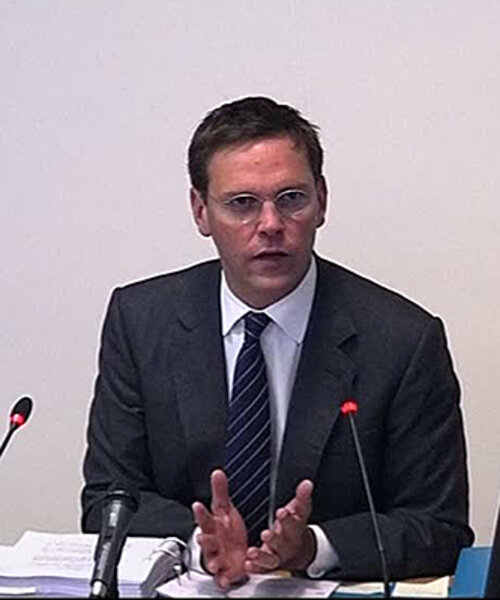James Murdoch is arguably the most important man ensnared in the phone hacking scandal, at least so far. Although not as powerful in the Murdoch empire as his father, Rupert, James was the chair at both News International and BSkyB, though he has since stepped down from both positions. His role at News International is particularly key, as he served as the chairman while the phone hacking was happening at News of the World, a newspaper under News International’s corporate umbrella.
James has consistently denied any knowledge of the phone hacking and has not been charged with any crimes in relation to the scandal. But during April 24 testimony before the Leveson inquiry, the body investigating the phone hacking scandal, investigators released several dozen emails that appear to show inappropriate communications between Culture Secretary Jeremy Hunt of David Cameron’s government and News Corp. Mr. Hunt appears to have regularly provided News Corp and James with backchannel information about the government review of News Corp.’s attempt to purchase BSkyB – a review that Hunt was supposed to be impartially adjudicating.
James is also close friends with Rebekah Brooks, former News International CEO, who is the highest level News Corp. official arrested so far in connection with the scandal.







